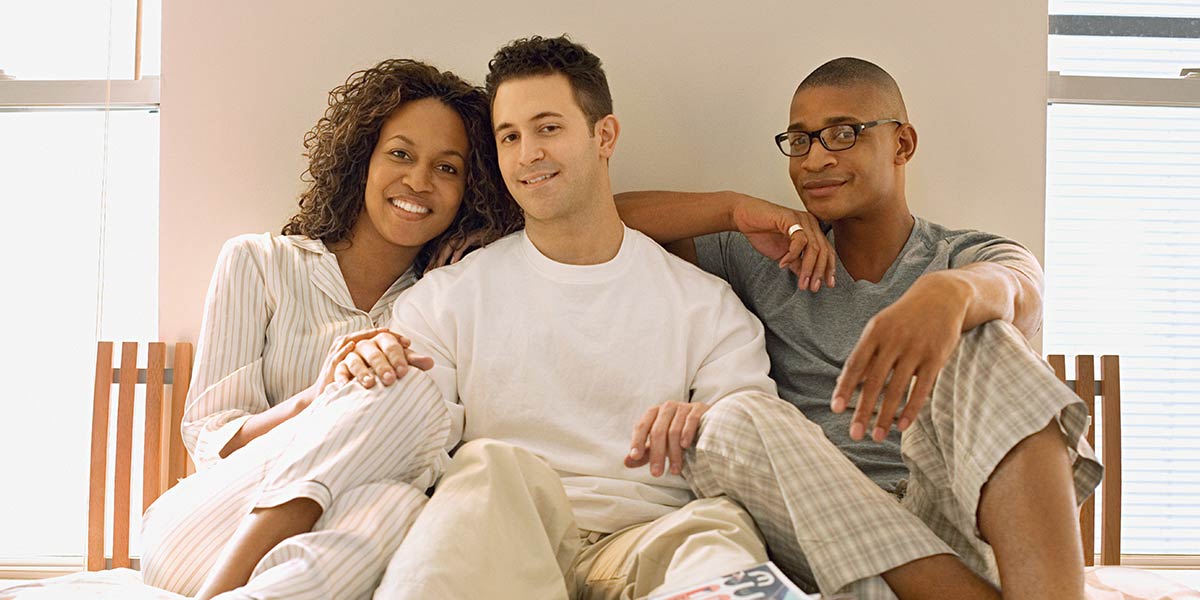SA could soon allow polygamous queer marriages

Polygamous queer marriages could become a reality in South Africa
In a bid to ensure true marriage equality, the government is proposing a new inclusive marriage law to better accommodate transgender South Africans and to allow for polygamous queer marriages.
The Department of Home Affairs recently published its Cabinet-approved Green Paper on Marriages in South Africa for public comment. The policy discussion paper offers options to standardise and consolidate the country’s haphazard marriage laws.
Marriages are currently regulated through three laws: The Marriage Act (for monogamous marriage for opposite-sex couples), the Recognition of Customary Marriages Act (polygynous marriages for opposite-sex black South Africans) and the Civil Union Act (monogamous partnerships and marriages for both same and opposite-sex couples).
These laws are an inconsistent and discriminatory mix of colonial and apartheid-era legislation and newer laws that were introduced post-1994. Despite attempting to redress historical injustices, they remain exclusionary. They don’t include all religious marriages and don’t accommodate transgender people married under the Marriage Act who change their sex marker (they are forced to get divorced and remarry under the Civil Union Act).
The laws are also homophobic and sexist: same-sex couples are excluded from entering into polygamous marriages and they only allow a man to marry more than one woman (not for a woman to marry more than one man). The separate but equal nature of the Civil Union Act also does not represent true marriage equality.
New legislation, says Home Affairs, must “enable South Africans and residents of all sexual orientations, religious and cultural persuasions to conclude legal marriages that will accord with the principles of equality, non-discrimination, human dignity and unity in diversity, as encapsulated in the Constitution.”
The proposal for a single marriage law follow a series of engagements in 2019 and 2020 with various affected groups, including religious and traditional leaders and LGBTIQ and gender rights organisations.
In the green paper, the department has proposed three possible options to consolidate the marriage laws. In the first, the Recognition of Customary Marriages Act would be amended to cater for polygamous marriages irrespective of race, cultural and religious persuasions.
The second option would do away with categorising marriages along racial, religious and cultural lines and South Africa would adopt a dual system of either monogamous or polygamous marriages.
Option three is the most “radical” and proposes a gender-neutral marriage regime. South Africa would do away with categorising marriages along lines of race, sexual orientation, religion and culture. The country would allow both polygyny (a man marrying more than one woman) and polyandry (a woman marrying more than one man).
The difference between options two and three is that the third allows marriages, whether monogamous or polygamous, to be concluded regardless of the sex or sexual orientation of the person.
Home Affairs appears to prefer this third option as it says it “will tick all the boxes” in terms of meeting the requirements of the Constitution’s Bill of Rights. The department acknowledged, however, that it remains to be seen if there is the “political appetite” to implement option three.
Unsurprisingly, the idea of a gender-neutral marriage law has already outraged conservative religious and traditional leaders, especially when it comes to allowing women to marry more than one man.
“This is the beginning of a crucial public discourse that will re-define the concept of marriage in South Africa,” said Home Affairs. “The process will unearth issues that may make some of us uncomfortable, but will encourage dialogue within the South African and international communities.”
An informal MambaOnline poll of 390 respondents suggests that there is significant interest in polyamorous relationships among LGBTQ+ South Africans. Thirty-one percent said they would consider entering into a polyamorous relationship or are already in one. Seventeen percent would like to but don’t think it’s workable. Just 41% said they are committed to the concept of monogamy.
Home Affairs is hoping to submit a final Marriage Bill to Parliament for approval by 31 March 2024.
Individuals and organisations are invited to offer their comment on the Green Paper on Marriages by no later than 30 June 2021.
Leave a Reply